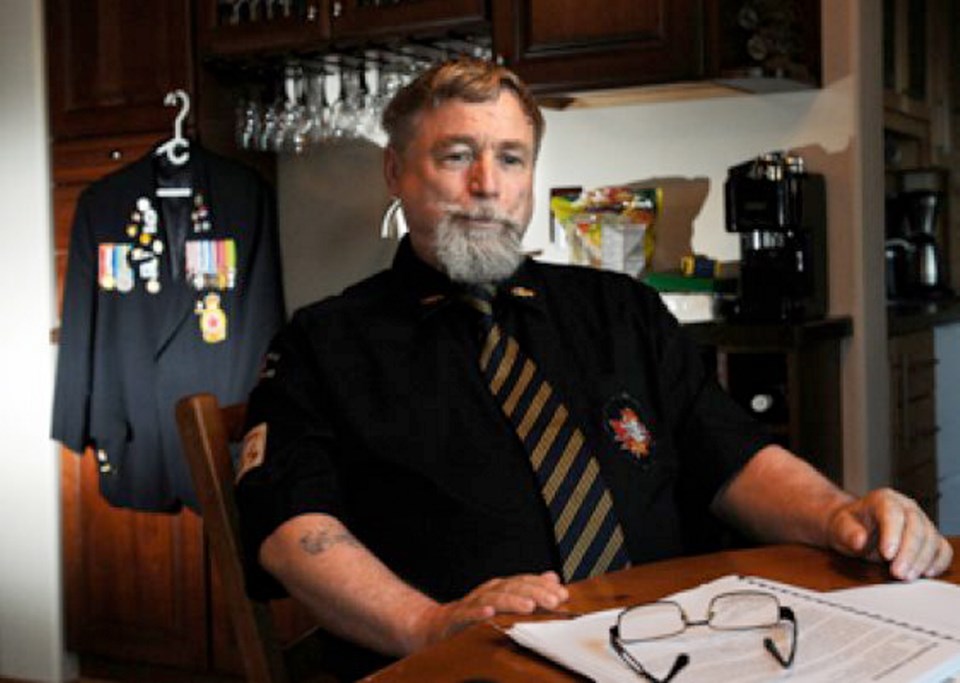Nanaimo resident Kenneth Young says he was shocked to learn that not only were his medical records from a now-closed military hospital destroyed four years ago, but so were 27,381 boxes of veterans' medical records nationwide.
Young, 65, tried for years to obtain the records, which he claims prove his healthy spleen was removed during a nearly six-month stay at Westminster Veterans' Hospital in London, Ont. in the mid-1970s.
He said the spleen removal has ruined his immune system and significantly decreased his quality of life.
In 2005, the Veterans Review and Appeal Board asked for Young's medical records when he was applying for a disability pension. Years later, the Privacy Commissioner's office told him the records were destroyed in 2009.
"I actually got the documented proof that they destroyed my personal files, and that's all they needed to send me because that's all I asked for," Young said. "But they sent me the evidence for almost every hospital they closed and 27,381 boxes of destroyed medical files. That opens Pandora's Box."
An email to Young from Valerie Stewart, the Veterans Affairs Canada national information holdings supervisor, says the files were being stored by Library Archives of Canada, which determined the files "don't have archival value."
The email reads, in part: "It is important in our negotiations with LAC that we proceed with the destruction of these files ASAP."
Young, who works with Nanaimo Legion Branch 257 and Canadian Veterans Advocacy, said the excuse that the files needed to be destroyed doesn't make sense.
"In 2009, almost in 2010 because it was late November, we had the technology to scan that, turn it into FTP files, put it on external drives and it would have all fit in a shoebox," he said.
"They destroyed my files 28 days after the Veterans Review and Appeal Board asked for them."
Parliamentary Secretary to the Minister of Veterans Affairs Pam Gill recently told the House of Commons that no living veteran's files were destroyed and that it was only hospital administrative files, but Young said Gill apologized for the comments on Wednesday and promised to look into it.
Young, who served in the Canadian Military for 13 years, said he wants to see a presumptive clause for veterans who can prove their files were destroyed.
"Veteran's Affairs says you can get a doctor's independent opinion, but in order for it to be considered credible evidence, the doctor must have your complete file," he said.
"Now how can the doctor have your complete file if they're destroying it?" Young said after having his spleen removed, his immune system was so bad he couldn't be around crowds of people and wasn't able to attend his son's graduation. He has to carry antibiotics whenever he travels and has to go straight to a hospital whenever he gets sick.
"It's just coming out now how many problems you have without a spleen," he said. "You're missing a good portion of your immune system."
Young will participate in his fourth board hearing on Dec. 9. In the meantime, he encourages any veteran who has ever stayed in a military hospital to request medical records.
He said nursing reports are there, but veterans should ask for test results and X-rays, because those are what's missing.



